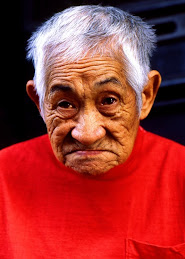What do you think Faulkner is suggesting about memory and the process of memory? Is memory different for each person? Can several people see the past in different ways?
Faulkner's use of a ruling servant, an invalid matriarch, an observant idiot, and a brutally abusive end to the family's patriarchal line suggest that memory depends greatly on one's position in life. Dilsey, who is the family servant and therefore slightly further removed from the family's downfall, views the past with acceptance and understanding. She acts as the calming influence for Mrs. Compson. She reprimands Luster and disapproves of Jason's actions. She criticizes both on occasion, yet she does so without anger or bitterness. She remembers the past in a way similar to Benjy, who is separate from the Compsons because of his retardation. Neither one of them feels slighted over their positions in life. They do not place blame on other characters. Their memories are viewed with rose-tinted glasses.
On the other hand, Jason and Quentin are in the center of the family's downfall. Their experiences are tinted with anger, jealousy, bitterness, and an overwhelming sense of regret. Their reactions to memory provide the largest contrast between the two. Quentin obsesses over his childhood and the relationship with Caddy, and each of his memories is linked somehow with Caddy--whereas Jason lives very much in the present. Jason does not often reflect on the past, only the past that affects his money-making schemes or lack thereof. As the head of the family, he seems to have inherited the most sin in the form of character flaws. He remembers the fathers as struggling patriarchs. He does not have many memories of the women except for what his father has told him.
These memories are further enhanced by how widely they differ from each other. Dilsey and Benjy can again be grouped as people who remember Caddy's goodness as well as the faults. They quietly record the most accurate catalog of her life. Jason, on the other hand, hates her passionately and only remembers her broken promise and his petty revenge. Quentin's memories radiate guilt. Each picture of her and their childhood friendship is tinted with shame and regret that her story did not turn out differently. Every one of these differences serves to show how the past is remembered differently depending on the position from which the character views the family.
